featuring:
Shirley Chung
- from:
-
Twenty Eight
Orange County, CA
- recipe:
- Spice oil poached Newport black cod w/ crustacean broth, shiitake, braised daikon + holy trinity
I think we need a bigger boat! Heading to the ocean always brings back memories of the great one. But now it’s 6am at the Newport Beach Dory Fleet Market. Fish and crabs daily. Buoys hang by their necks, seagulls buzz above, and the waves make that beautiful sound by crashing on the shore.
We’re meeting Shirley at the West Caught Co. stall along with owner Scott Breneman to shop the catch of the day. Looking for a sablefish (a.k.a black cod). Ever get the feeling your being stared at? “Pick me!” Or maybe “don’t pick me!” like back in grade school. The sun greets the horizon.
Shirley’s choice is cleaned + bagged. A thank you to Scott and his team and we head off to the restaurant…
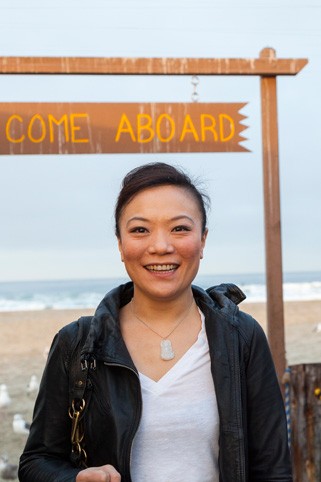
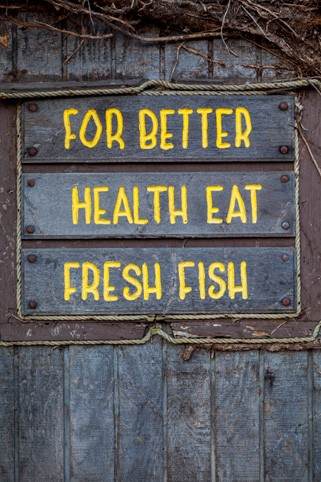

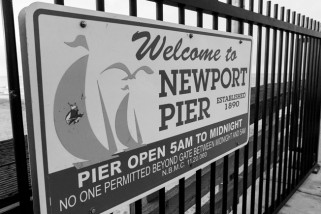

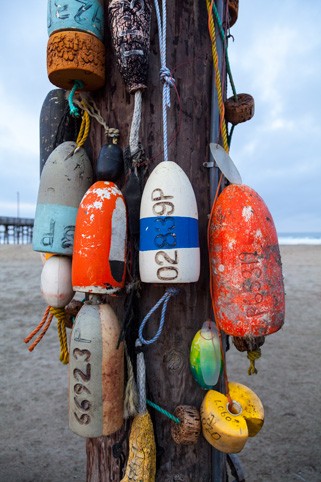



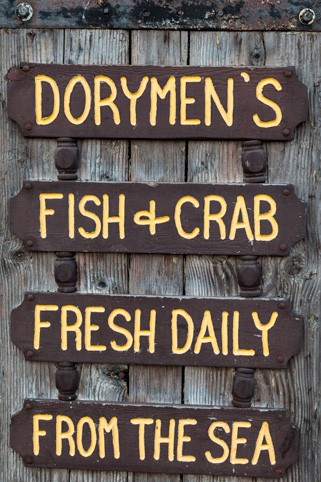

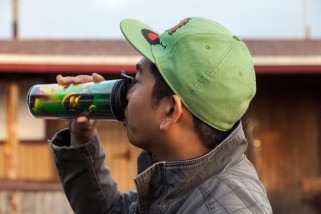
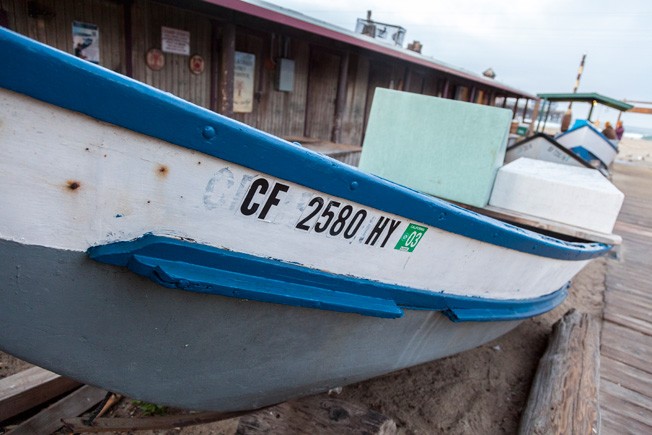
Describe yourself
A little crazy. Very outgoing. Goofy, but very passionate about life in general. Is that too short?
That’s fine. Where do you call home?
Right now it’s Orange County. Newport Coast. That’s home. Where my husband and my dogs are at.
Your dogs?
My dog.
Is it “dog” or “dogs?”
I had two but one passed…
Aww. Why’d you have to bring that up?
I’m sorry.
It’s OK. He’s in a better place.
Yes. Next question!
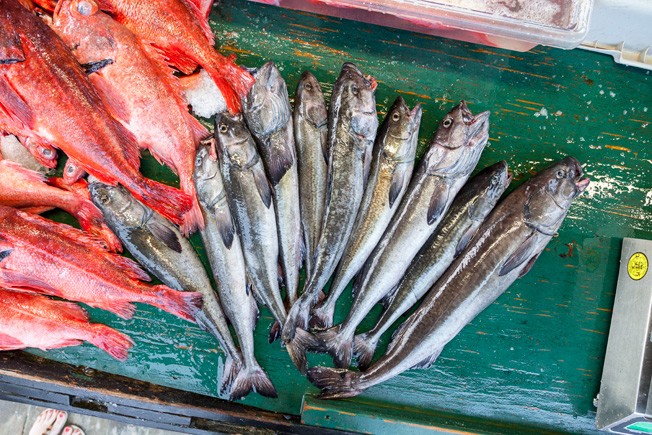
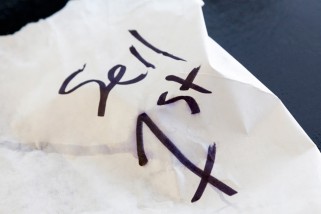
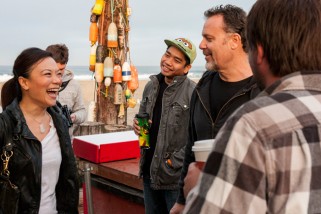
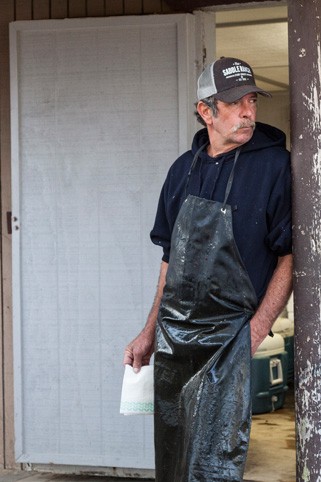
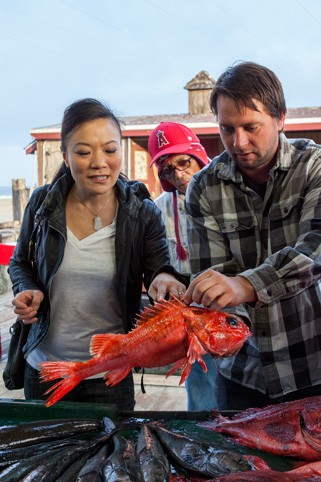
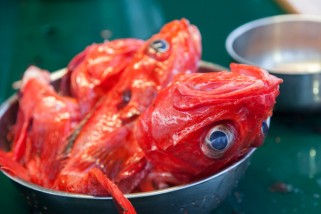

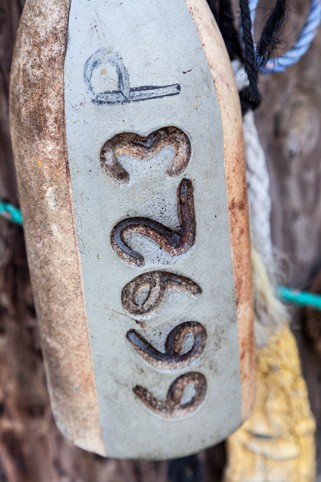
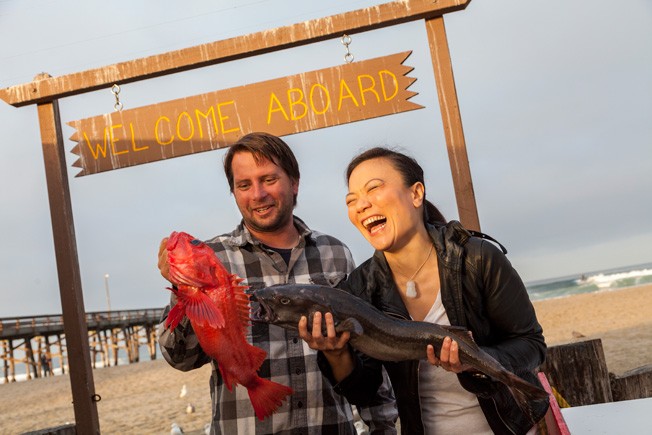
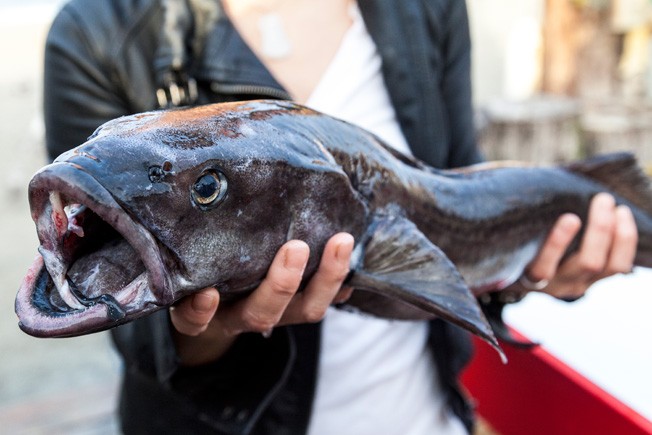
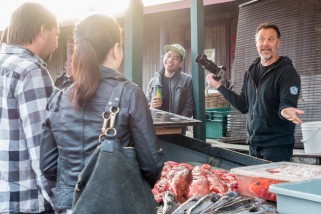
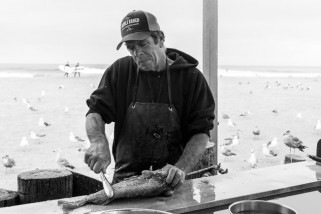

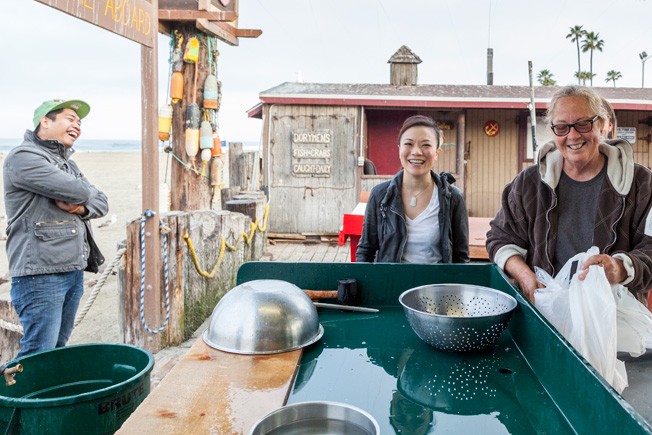
Would you do Top Chef or something similar again?
Totally, if it was a shorter filming time. It was almost three months of shooting and now with the restaurant running, there’s no way I could leave for that long. But I love the competition. I had so much fun on Top Chef, I would totally do it again. I still have really good relationships with the producers and directors and I was invited back for Top Chef Duels. We’re all friends and if an opportunity comes up I know they’d invite me again.
Wow, three full months?
Yeah, we were on lock down in New Orleans for almost three months. It was fun. They cut off all contact. No cell phone, no laptop, no TV. We listened to radio in the car on the way to the studio and it was such a great treat [laughing]. “Can we play house music? Please please please? And rock music today?” We weren’t able to talk to anybody. They took away our driver’s license so we couldn’t escape, I guess [laughing].
So you could only talk to the other contestants?
Yeah, contestants only. If regular people on the street talked to us our handler had to talk to them for us.
*You* had a handler?
Yes, it was very weird [laughing].
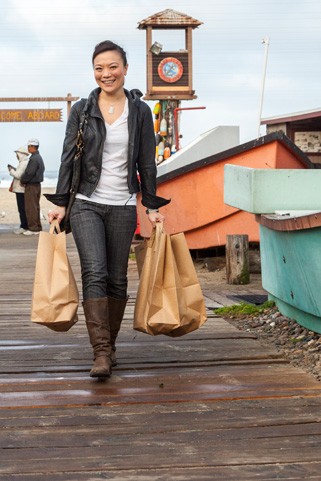
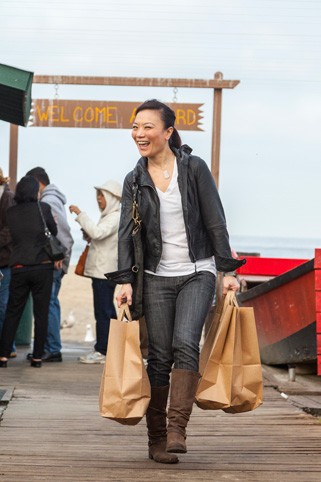



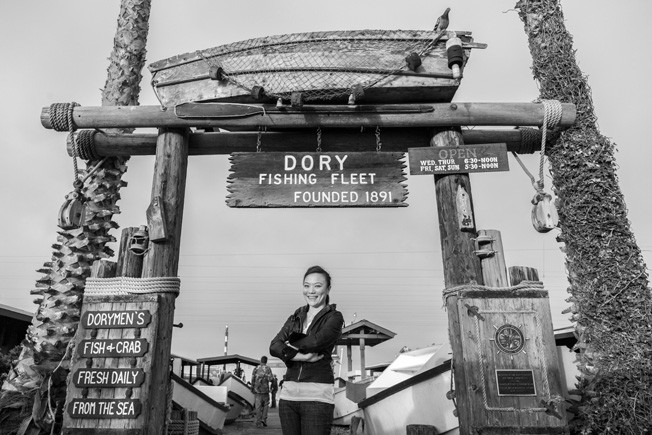





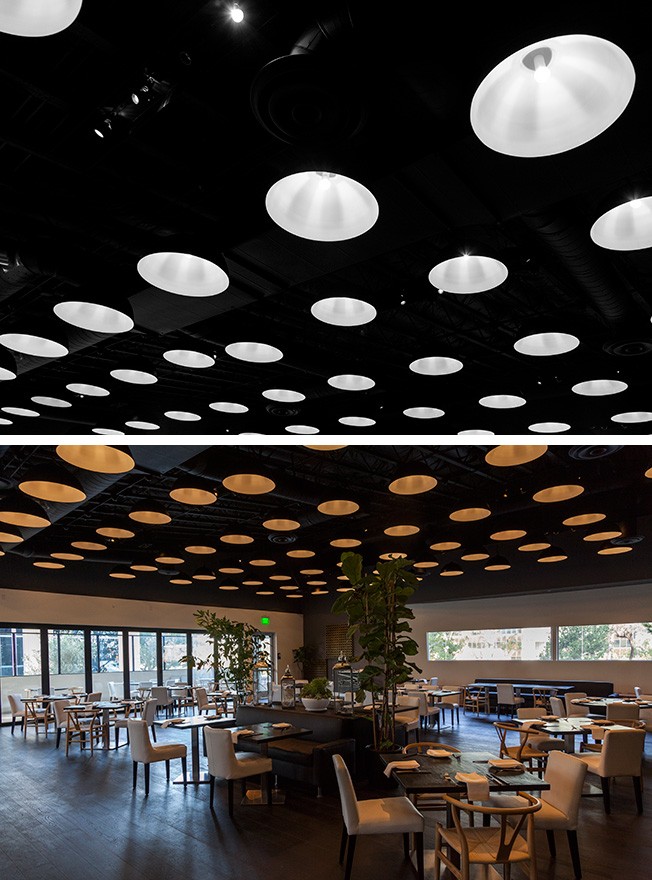


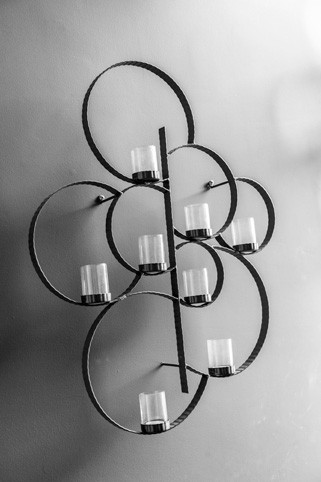


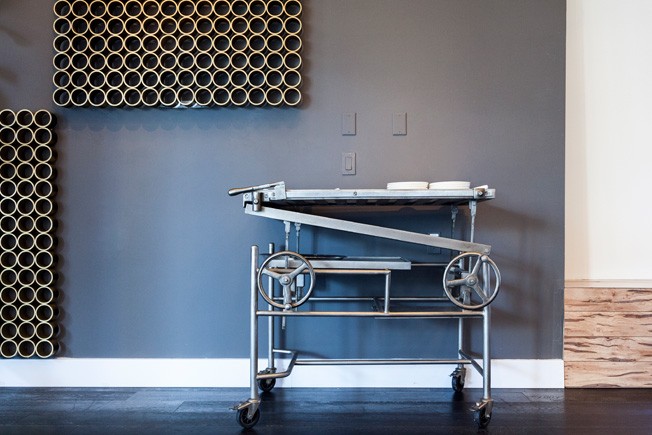

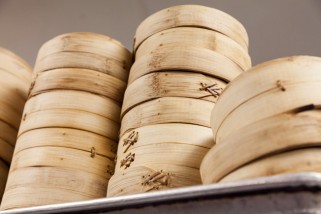

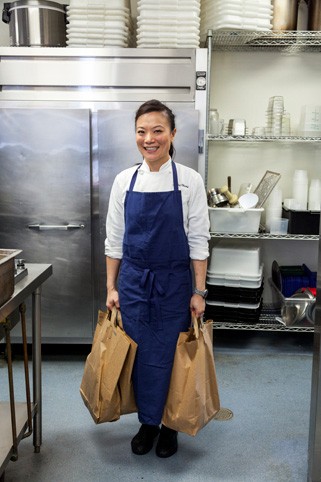
Is “28” still significant?
Definitely. First of all, I’m always 28 and so is everybody that comes to this restaurant [laughing]. But 28 is also the age I started cooking and the number itself in Chinese and Asian culture has a really good meaning.
You *started* cooking at 28? Really? I don’t believe that.
What? After shooting together all morning you don’t trust me now?
Well now I’m not sure!
I should say I collected my first paycheck at age 28, as a cook. Before that I worked in Silicon Valley for a few years but it wasn’t my passion. It was a job. Look at me? Can you imagine me sitting in front of a computer for eight hours a day?
No way.
So after the dot-com boom and the market crashed—I was with a semiconductor startup company and it was going down—I sort of laid myself off and gave myself a severance package and went to culinary school. It was actually my husband who pushed me to pursue my passion and I never looked back.
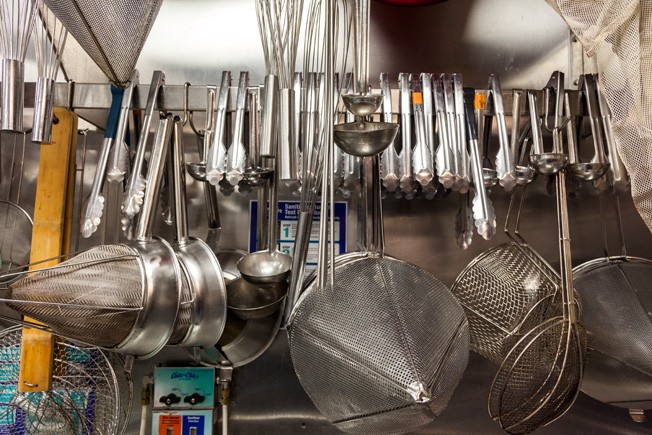

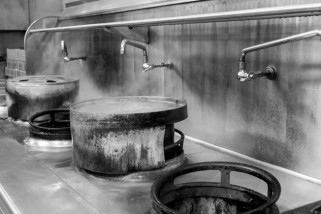
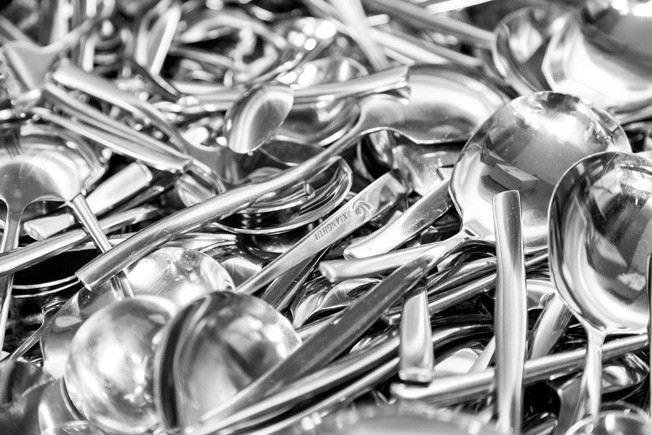
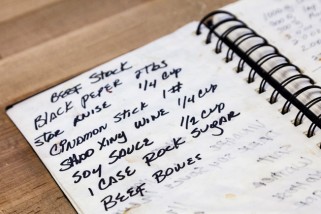
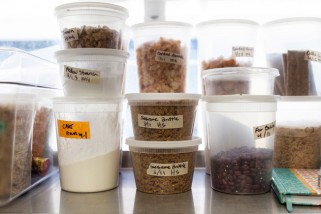
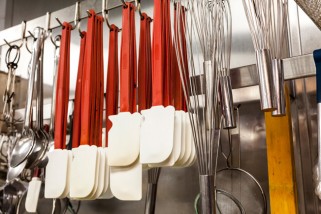
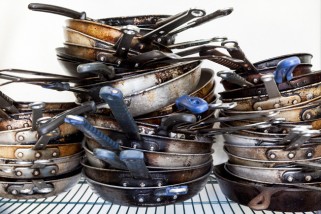
How good of a cook is your mother?
My mom is a really, really good cook… [smiling large, she breaks into laughter].
Be honest!
Well, she doesn’t know she’s not that great of a cook. Or maybe she knows but doesn’t admit it. It took her a long time to get steamed rice correct. Sometimes too soft, sometimes too much water, or not enough. She couldn’t figure out the consistency. And she likes to boil everything, a lot of one-pot cooking. She doesn’t know the concept of high heat searing or sauté or stir fry. But she has an excuse! She doesn’t have a sense of smell because when she was younger she lost it from a high fever. And when you lose that sense, your taste isn’t that great so when it comes to seasoning she always guesses. But she was an awesome career woman, cooking just wasn’t her talent.
So what made you start cooking?
I always loved food. My way to explore the world is by taste and eating everything. When I was a kid I would just put things in my mouth to see what happens. Growing up my mom was so busy being a doctor, I was brought up with a lot of nannies. They were very young and from a different region of China so they cooked different things that I didn’t really like to eat.
So starting in second grade I started to cook for myself, noodles or fried rice during lunchtime. My mom is an amazing gardener and she had rose gardens and vegetable gardens so at an early age I knew where my food came from and knew I had to make something balanced, so I’d go pick some fresh vegetables for my soup or cut up some ham or use an egg for protein.
Eventually that evolved into cooking for friends and hosting house parties. I thought I was a pretty good home cook but like I said, later it was my husband who pushed me into pursuing this for a career instead of just a hobby.
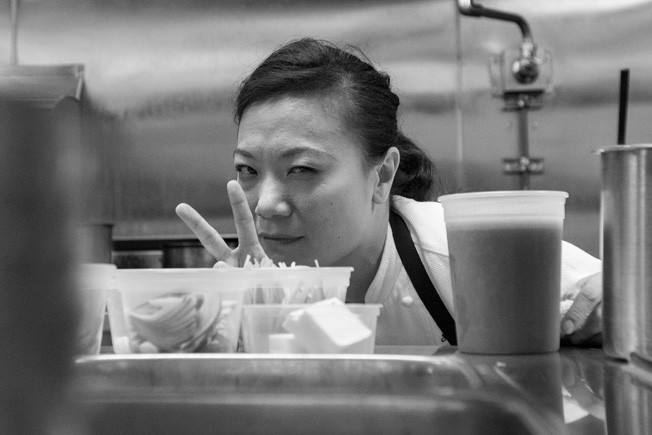
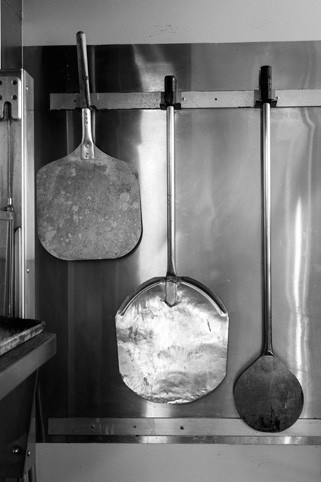
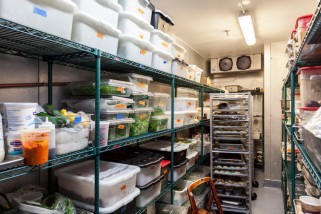
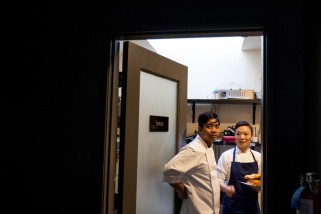
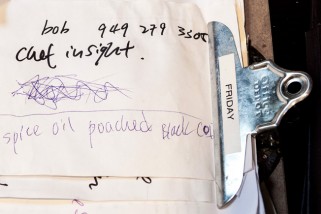
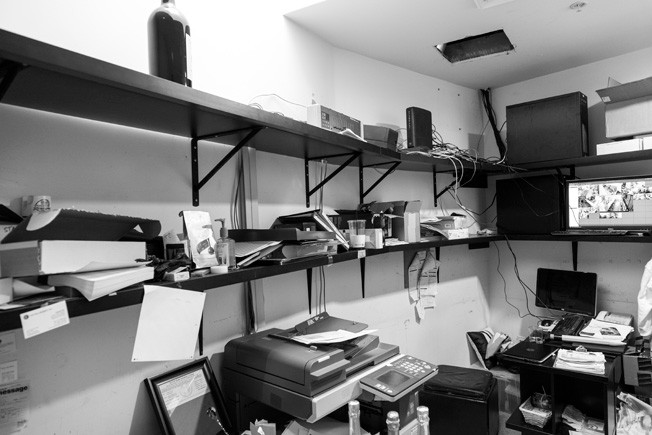
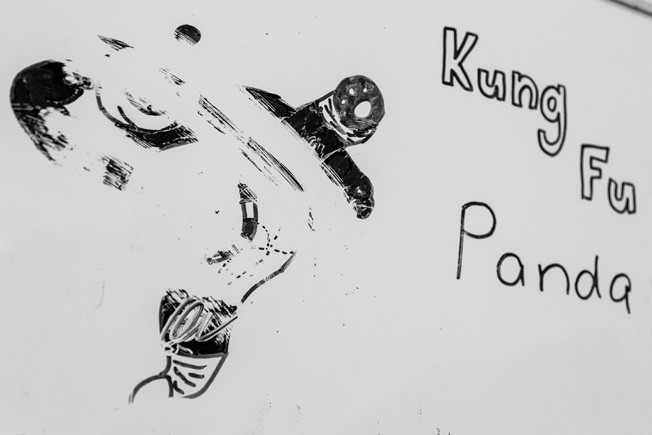

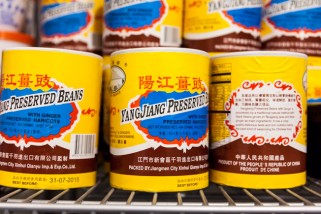

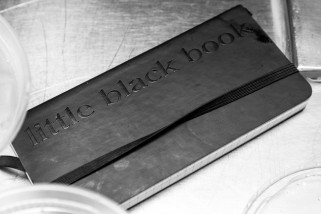
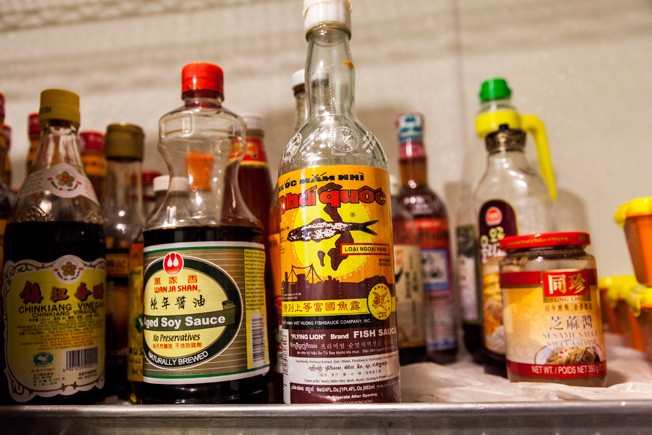
We’ve seen “cuisine without borders” related to you a few times. What’s that mean to you?
It’s based on my life experience and also my cooking experience. Growing up in Beijing and then going to Northern California for college, I have this melting pot of influences, plus I love to travel. And when it comes to my culinary career, I didn’t plan it out this way, but I started externing at the French Laundry, then went into Bouchon, my first paying culinary job. Then Guy Savoy, very traditional French. From there I moved on to the Mario Batali Group. I was with him for four and half years and opened three restaurants for him, traveling through Italy doing research and development and really falling in love with that culture.
After that was (José Andrés’) China Poblano, and actually the first time I cooked Chinese food professionally. I had to learn things like how to use a commercial grade wok from one of my sous chefs who had 17 years of traditional Chinese cooking experience. But the other side of that restaurant identity is traditional Mexican cuisine. I read and watched a lot of YouTube videos to learn more because, like Chinese cuisine, there’s not a lot of great recipe books. A lot of it is by feel and “grandma’s recipes” in the family.
Being on Top Chef helped me figure out my cuisine and find my voice, to use all those years of work experience and travel and the food I ate growing up. I have to be true to myself. I will always have a Chinese soul in my cuisine but nothing will ever hold me back.
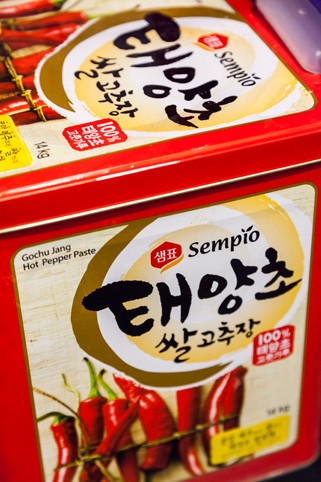

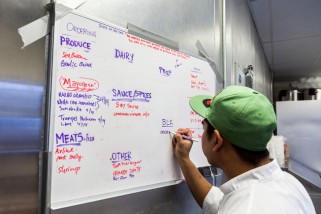
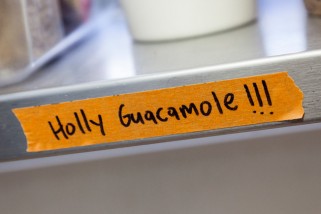
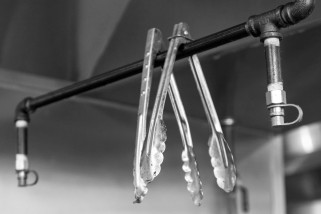
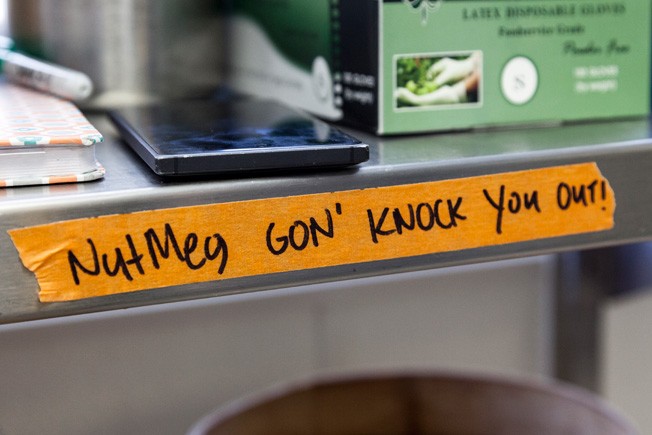
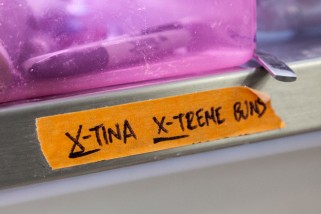
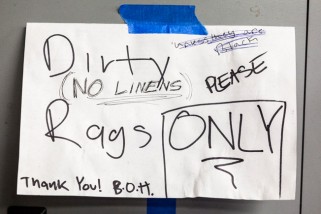
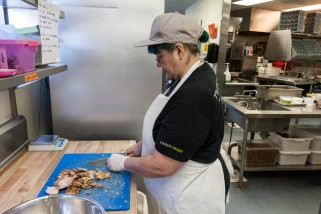
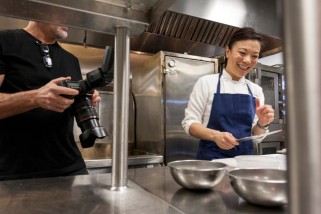
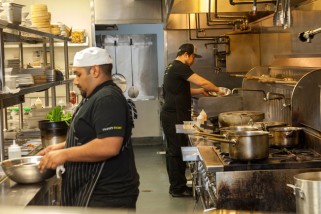
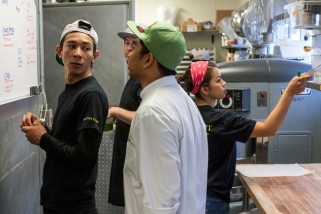
What is a typical family meal here?
We like to change it up a bit, we do theme nights like Saturday Mexican or Wednesday Italian days. We actually cook Mexican food a lot because we all like to eat spice. My chef de cuisine opened Chino Poblano with me so we have very strong Mexican roots together. And plenty of different Chinese food. Not what we cook here but more homey style. None of my cooks are Chinese so it’s a great way for them to learn where I come from and the food I grew up with instead of only what we serve here.
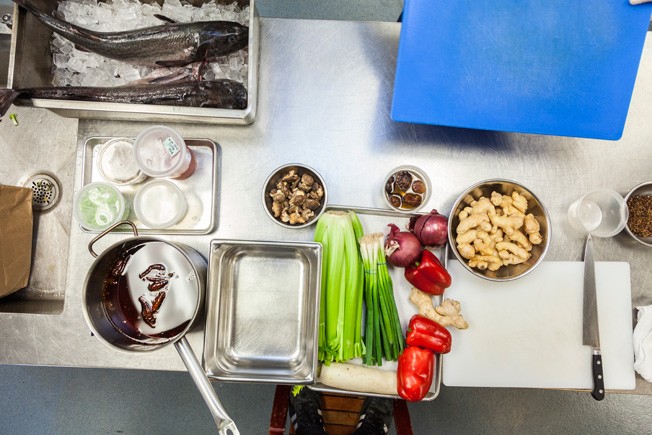
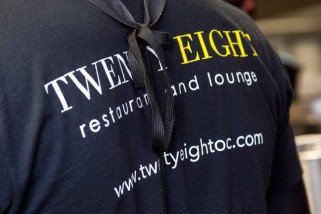
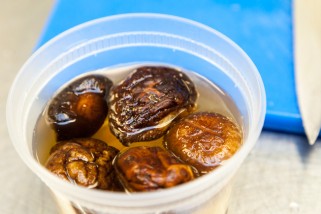
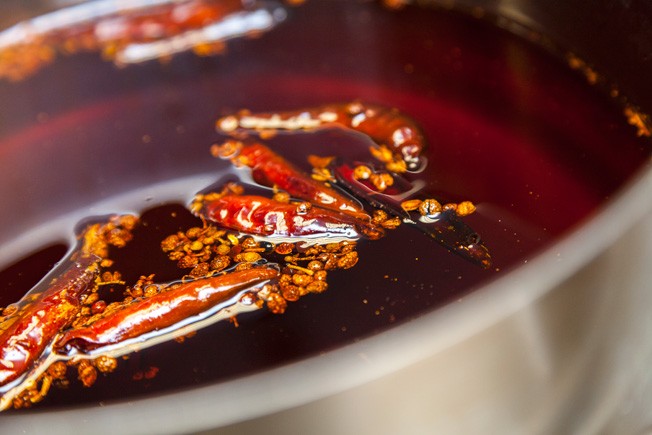
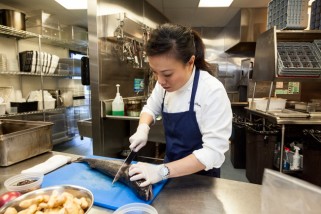
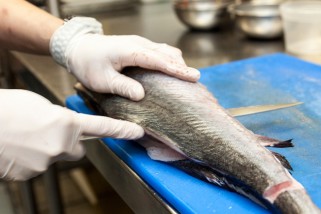
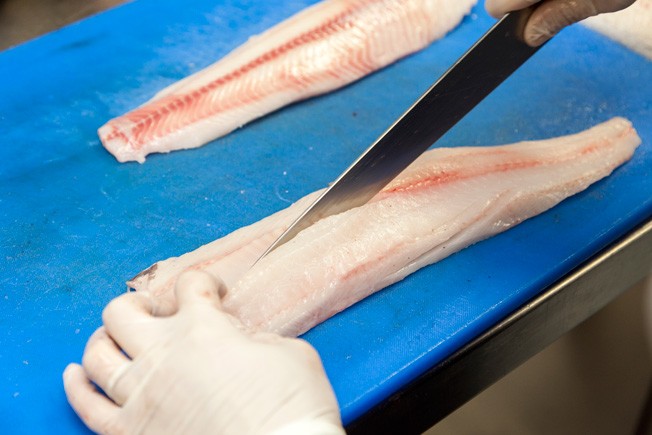
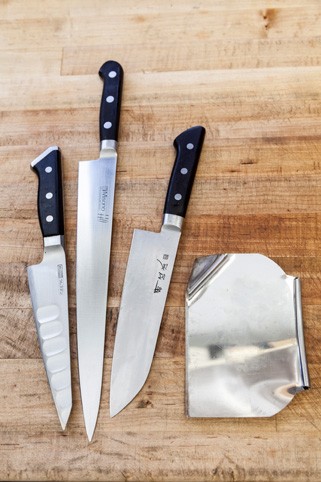
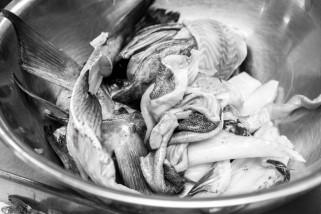
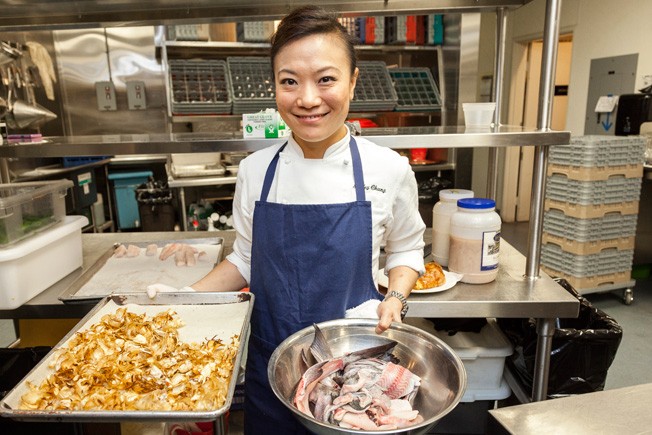
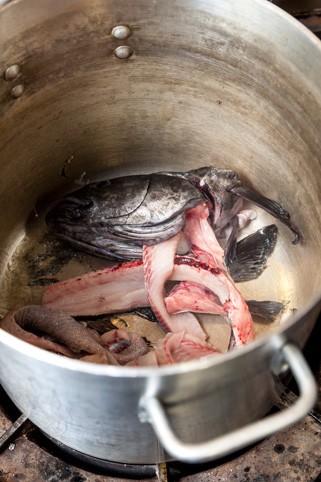
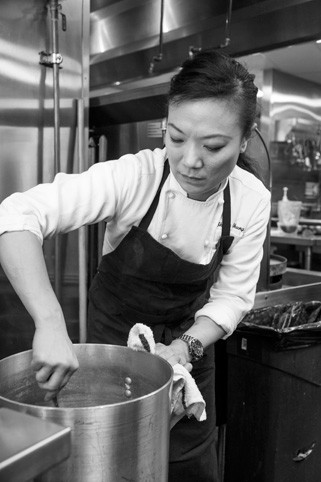
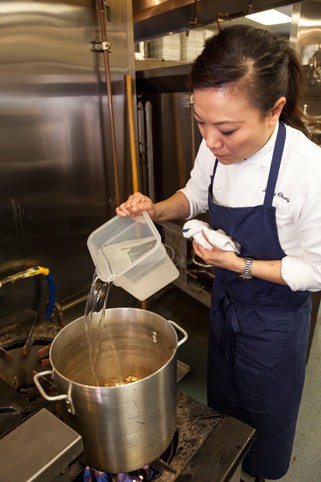
OK, now I want to hear about monkey brains
Where did you get this? Where did I mention monkey brains?
We called your mother. She said when you were little…
You stop it, that was my grandmother.
Your *grandmother* took you to eat that?
I was telling this once and the lady at the next table told us to shut up, because she was getting grossed out. Do you know how many we’re going to offend? [Laughing]
So my grandmother was director of Red Cross of China and she always believed that kids should eat well-rounded, so everywhere she traveled around the world she’d bring back food souvenirs for me like cheese that the typical Chinese family wouldn’t be exposed to. She would also take me to national banquets and cool events. One was in Sichuan province where they used to have a delicacy cuisine of hot oil monkey brain. So, I had that at a very young age, almost five. It’s a very bloody and… I don’t want to talk about it because it’s really scary! A lot of people don’t understand how anybody could eat like that. I don’t remember much, I kind of remember the texture was like tofu.
I remember seeing a video a long time ago about a restaurant that had a live monkey in a table and they do it all right there.
At least they get the monkey drunk first, so that’s kind of nice.
Did she say what it was?
Yes but she did cover my eyes and ears kind of like this [covering her head with her arms and hands]. That was the finale of the national banquet [laughing].
the recipe:
Spice oil poached Newport black cod w/ crustacean broth, shiitake, braised daikon, and holy trinity
Crustacean broth
- 1 ea. black cod head
- 1 lb. shrimp head and shell
- 1c. Shaoxing wine
- 1 qt. chicken stock
- 1 qt. water
- 8 oz. ginger
- 1 head garlic
- 3 ea. shallot
- 4 ea. green onion
- 8 oz. celery trim (trim from celery garnish)
- 8 oz. daikon trim (trim from daikon garnish)
- 2 ea. star anise
- 1 tbsp. Sichuan peppercorn
- 1 oz. dry red arbol chili
- 2 oz. rock sugar
- 1 tbsp. oyster sauce
- 3 tbsp. aged soy sauce
- 6 tbsp. Zhenjiang black vinegar (Chinkiang Vinegar)
- 1/2 lb. diced cold butter
- ½ ea. lemon
- Clean and wash fish head, drain
- Slice ginger, garlic, shallot and green onion
- Toast all dry spices and chili
- In a stock pot, heat up cooking oil, brown the fish head and shrimp heads and shell
- Sweat the ginger, garlic shallot and green onion in the stock pot
- Deglaze the pot with Shaoxing wine
- Add water and chicken stock
- Add rest of the veg
- Let this seafood stock simmer for 40 minutes
- Add toasted spices and chili, simmer for 20 minutes
- Add rock sugar, when come back to simmer, strain the stock
- Add oyster sauce and aged soy sauce into the strained stock, simmer 5 more minutes
- Add black vinegar, emulsify butter, and fresh squeeze juice of ½ lemons, salt to taste
Vegetable prep
- Celery
- Daikon
- Red bell pepper
- Red onion
- Dry shiitake mushroom
- Leeks
- Drop the whole red bell pepper into fryer, blister the skin then put them into a bowl, cover with plastic. Peel the skin and de seed, slice them into julians
- Peel the rib of the celery and cut them into ¾ in. x 2½ in. rectangles, blanch them in salt water and shock in salted ice water
- Peel the skin of daikon radish, cut them into 2½ in. long about the same thickness as the celery, cook them in salted water, and bring up from cold. After it’s tender, portion them into the same size and thickness as the celery
- Rehydrate the dry shiitake mushrooms in cold water, overnight. Julian them after rehydrating
- Julian red onion
- Use leek white only, clean and slice into julians with the grain, quickly blanch in salt water.
For Pick up:
- Heat up oil in cast iron sauté pan, equal part of roasted red bell, red onion, shiitake mushroom and leek white, sauté until tender, season with salt and pepper and 1 splash of black vinegar
- Build a “raft” with 2 pcs. celery and 1 pc. daikon in the middle.
Herb Garnish
- Thinly slice the green onion top, then soak them in the ice water so they will curl up
- 1 spring of cilantro
Spice oil poach
- 4 oz. portion of black cod filet
- 2 tbsp. Sichuan pepper corn
- 10 ea. arbol chili
- 1 tsp. cayenne
- 1 tsp. paprika
- 1 whole garlic
- 3 qt. blended olive oil
- Combine all spices and the oil and bring the spiced oil to 180 degrees
- Season the fish with salt and gently put the fish into warm oil, keeping the oil temperature at 160 degrees
- Slow poach for 7 minutes
- Drain the oil and ready to plate
